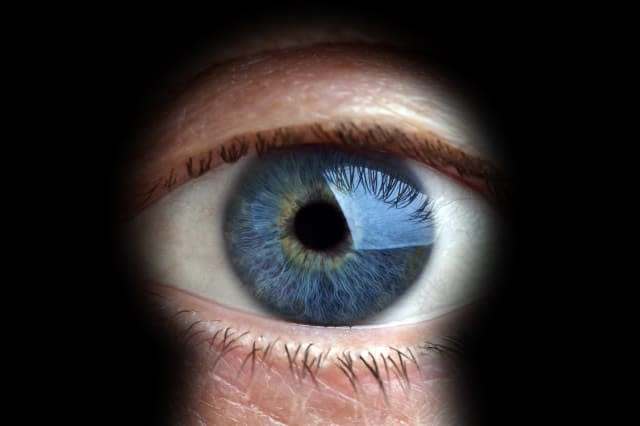Privacy at work: what are your rights?

In a survey last year, a quarter of people said they regularly wasted time on Facebook at work. Many more use the working day as a chance to catch up on their private emails.
But since a landmark ruling earlier this year from the European Court of Human Rights, your boss may have the right to snoop on what you're doing online. We look at how this decision affects you - and what privacy rights you have at work.
Romanian engineer Bogdan Mihai Barbulescu was fired from his job for breaking a company rule that banned staff from making personal use of work resources.
He'd been sending messages to his fiancee and brother during work hours using Yahoo Messenger on a company-owned device, and the company had produced a 45-page transcript of his chats.
After he lost an appeal against his dismissal in Romania, he took his case to the European Court of Human Rights, claiming that the sacking was a violation of his rights to private correspondence.
However, the court ruled that it was not 'unreasonable for an employer to want to verify that the employees are completing their professional tasks during working hours', and said that Mr Barbulescu had not 'convincingly explained why he had used the Yahoo messenger account for personal purposes'.
The decision means that if you're issued with a device such as a PC or phone at work, your bosses have the right to see all your communications - whether or not it's in work hours. That includes emails, Skype chats, Facebook and WhatsApp - everything you do, basically.
In the past, companies have only been allowed to look at your emails and other communications if they're trying to detect criminal activity. Back in 2007, a Welsh college started monitoring the emails of an employee because they suspected her of misusing work hours. She sued the college and won, on the grounds that she had a right to privacy.
Now, though, it's only if you're using your own phone or PC that your communications will be private.
However, the company does have to set out any ways in which it plans to monitor you in your contract, and make it clear what is and isn't allowed: many companies allow a reasonable amount of private internet use, but draw the line at porn, for example.
And it's not just your online activity that may be monitored. More than three in ten British companies keep track of which phone numbers their staff are calling - and one fifth don't tell their staff they're being monitored in this way, even though they're supposed to.
Employers are allowed both to check phone numbers and even to listen in to calls in order to prevent crime or misuse, to record a business transaction, or to make sure that staff stick to proper procedures and hit key standards or targets.
And some organisations go much further in monitoring their workforce. Amazon in particular has come under fire for fitting warehouse staff with GPS trackers and monitoring their every activity, right down to how long they take to answer an email.
It's legitimate to use tracking devices and CCTV as long as staff are informed and as long as private areas, such as toilets, aren't filmed. Bosses can even film you outside the workplace, search your bags and check your credit rating.
And with the rise in wearable technology, workplace monitoring is only likely to increase. Many US companies already offer activity-tracking devices such as the Fitbit, and some test all employees for their alcohol level every day.
But the latest development in employee monitoring is already appearing in the US. Sociometric badges from companies such as Humanyze track a worker's every movement and interaction, recording where they go within the company, who they talk to and how they interact.
As things stand, the badges don't record the actual content of conversations, only their tone of voice, posture and body language, as well as who spoke to whom for how long.
Employees at the 20-odd companies where they are in use have all opted in to the system., and the organisations involved are only collecting aggregate data rather than information on employees individually. The aim, they say, is to improve worker interaction rather than simply productivity.
However, it doesn't bode well for the future, and Ben Willmott, head of public policy at HR professional body the CIPD says that companies should think carefully before monitoring their employees.
"Our research has shown that excessive monitoring of employees by organisations often cultivates a culture of distrust and negatively impacts on their loyalty and commitment. Employees that feel under excessive surveillance are also more likely to suffer from stress so there needs to be a clear case for monitoring," he says.
"Organisations need to be transparent about if they are doing it and why; for example, being clear on the risks that the monitoring is designed to prevent. Employers should also set out clear rules around what personal use they do allow and what the limitations on this may be, such as the hours in which it is permitted."





